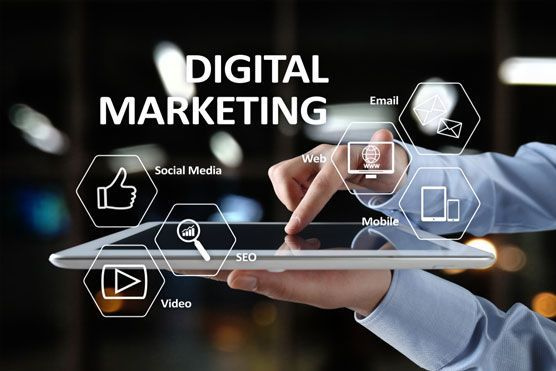The Power of Personalization in Digital Marketing Campaigns

.
How the power of personalization in digital marketing campaigns can enhance customer experiences, increase engagement, and drive higher conversions. Learn the key strategies to tailor your messaging for maximum impact.In the ever-evolving landscape of digital marketing, personalization has emerged as a game-changing strategy that significantly enhances the effectiveness of marketing campaigns. Personalization refers to tailoring content, messaging, and experiences to individual consumers based on their preferences, behaviors, and demographics. By leveraging data analytics and advanced technologies, businesses can create highly relevant and targeted marketing messages that resonate with their audience, resulting in increased engagement, loyalty, and conversions.
In today’s fast-paced digital landscape, consumers are inundated with marketing messages from every direction. To stand out and capture attention, businesses must move beyond generic content and embrace the power of personalization in their digital marketing campaigns. Personalization refers to tailoring marketing messages and experiences to individual customers based on their preferences, behaviors, and previous interactions with the brand. This strategy goes beyond simply addressing customers by their names; it involves delivering relevant content and offers that resonate with each unique audience segment.
The power of personalization in digital marketing campaigns lies in its ability to create tailored experiences that resonate with individual consumers. By leveraging data and insights about customer preferences, behaviors, and demographics, brands can craft messages and offers that speak directly to their audience’s needs and interests.
Why Personalization Matters
- Enhanced Customer Experience: Personalization allows brands to meet consumers’ specific needs and expectations, creating a more enjoyable and relevant shopping experience. When customers feel understood and valued, they are more likely to engage with the brand and make purchases.
- Increased Engagement: Personalized content captures attention and encourages interaction. Whether it’s personalized email campaigns, product recommendations, or targeted social media ads, tailored messaging has proven to drive higher engagement rates compared to generic content.
- Higher Conversion Rates: By providing tailored offers and recommendations, brands can effectively guide customers through the purchasing journey. Personalized marketing has been shown to improve conversion rates significantly, as customers are more likely to respond to relevant messaging.
- Building Customer Loyalty: Personalization fosters a sense of connection and loyalty. When customers consistently receive personalized experiences, they are more likely to return and engage with the brand, resulting in long-term relationships and repeat business.

Key Strategies for Implementing Personalization
-
-
Data Collection and Analysis:
The foundation of effective personalization lies in understanding your audience. Utilize data analytics tools to gather insights into customer behavior, preferences, and demographics. This information will inform your personalization strategy and help you tailor your marketing efforts.
-
-
-
Segmentation:
Divide your audience into segments based on shared characteristics or behaviors. This allows you to create targeted campaigns that speak directly to each group’s needs and interests, making your marketing efforts more relevant and effective.
-
-
-
Dynamic Content:
Use dynamic content in your emails, websites, and advertisements to deliver personalized experiences. For instance, show product recommendations based on past purchases or browsing history, ensuring that the content is tailored to each individual user.
-
-
-
Personalized Email Marketing:
Leverage personalization in your email campaigns by addressing recipients by their names and offering tailored content and recommendations. Segment your email lists to send relevant messages based on customer behavior, such as abandoned carts or previous purchases.
-
-
-
Utilizing AI and Machine Learning:
Implement AI-driven tools and algorithms to analyze customer data and deliver personalized recommendations in real-time. Machine learning can help predict customer preferences and automate the personalization process, ensuring timely and relevant marketing efforts.
-
-
-
Feedback and Adaptation:
Continuously collect feedback from customers to refine your personalization strategies. Analyze the performance of personalized campaigns and make necessary adjustments based on what resonates with your audience.
-
The power of personalization in digital marketing campaigns cannot be overstated. By delivering tailored experiences that meet the unique needs of individual customers, brands can significantly enhance engagement, conversion rates, and customer loyalty. As consumers increasingly expect personalized interactions, businesses that embrace this strategy will be better positioned to thrive in the competitive digital landscape. By leveraging data, segmenting audiences, and implementing dynamic content, marketers can unlock the full potential of personalization, creating meaningful connections with their customers and driving long-term success.
The power of personalization in digital marketing campaigns lies in its ability to create tailored experiences that resonate with individual customers. By leveraging data and insights, marketers can deliver content, offers, and recommendations that meet the specific needs and preferences of their audience
